We won’t let another lake disappear
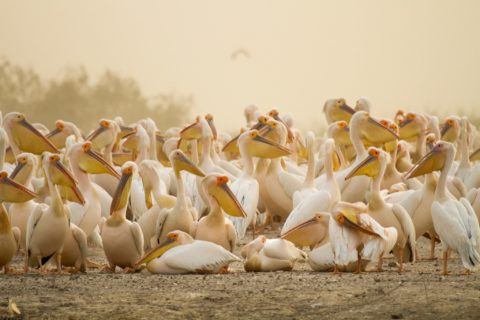
Every year thousands of birds fly across continents to escape the cold winter and find temporary refuge in another part of the globe. The route they take is called a flyway. It’s usually a long, dangerous journey, through sun and storm, in daytime and night. So, the birds make stopovers in particular places to feed and refuel before they reach their ultimate destinations. One such migratory bird species is a duck called the Northern Shoveler. Part of the population flies all the way to their final destination- a lake in Ethiopia called Abijatta. This is a story of Lake Abijatta and its feathered inhabitants.
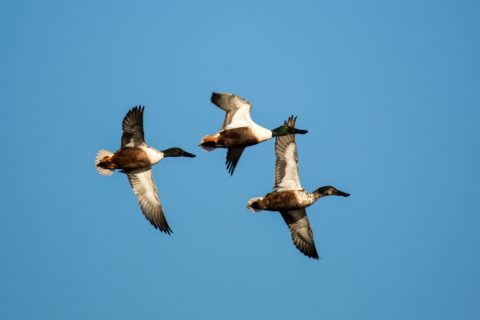
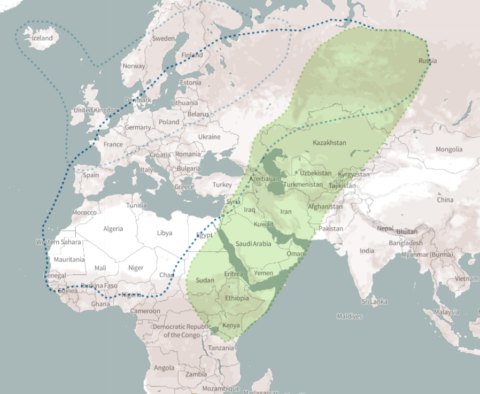
This lake is part of the Ziway-Shalla river basin in Ethiopia. Upstream of Lake Abijatta, you will find Lake Ziway. Unlike Abijatta, which is saline, Ziway is a freshwater lake. These two lakes are connected by the Bulbula river, which seasonally carries excess freshwater from Lake Ziway into the saline lake Abijatta. The Northern Shovelers are dependent on this pulse of freshwater in Abijatta. By the time the ducks arrive, the lake is usually ready to receive its guests having received its freshwater discharge from Ziway through the Bulbula river.
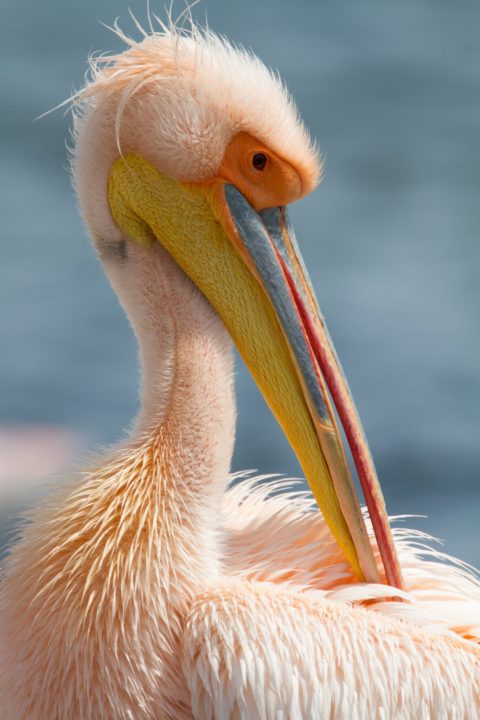
Lake Abijatta is also home to flamingos (both lesser and greater). Flamingos come to lake Abijatta from Kenya and Tanzania to feed, occasionally some remain to nest. Abijatta also used to be home to the Great White Pelican. The Pelicans were locals, breeding on small islets in neighbouring Lake Shalla. These three kinds of birds depended on three different features of this lake. Flamingos depend on the lake’s most saline regions, feeding on small brine shrimp and algae native to the saline water. Pelicans were sustained by several fish species, that live in the fresh and brackish zones of the lake. The Shovelers need the freshwater flowing down from Lake Ziway to provide the conditions needed to replenish their energy for the trip back to their breeding grounds in Central Asia.
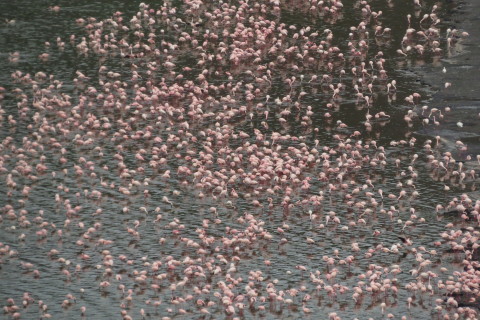
But things started changing in and around Lake Ziway. A growing population demanded increasing volumes of freshwater. Small scale agriculture and multinational agribusiness boomed around this lake, the single largest source of freshwater in the region. To meet the ever increasing demand, a weir (dam) was built at the mouth of Bulbula river, to retain most of the freshwater in Lake Ziway, preventing it from flowing downstream to Lake Abijatta.
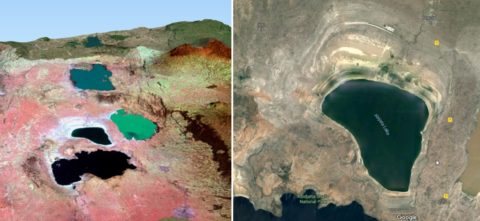
This may sound like good news for flamingos, since little to no freshwater flowing into Lake Abitajja, means it is becoming more and more saline. However, if things continue this way, in a few decades, the lake will turn into a saline pond where even the brine shrimp the Greater Flamingos depend on cannot live. A pond where only a certain kind of algae can thrive on which only the Lesser flamingo can survive. The rapidly receding shoreline of the lake forebodes that soon it would not be able to support lesser flamingos either.
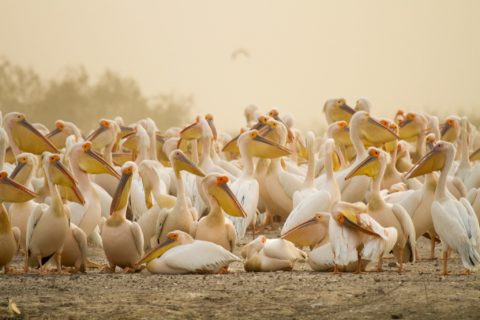
The loss of the lake’s ability to support the brackish water fish needed by the pelicans, has forced them to stop coming . They are now overpopulating lake Ziway and Awasa. The Shoveler population is already in decline. Soon they will lose their wintertime sanctuary completely. They will fly thousands and thousands of miles, only to find Lake Abijatta unable to host them. No freshwater from Ziway, no food, no suitable surroundings to rest or stage.. Moreover, lake Ziway has also started to shrink and become more saline, leaving no option for these birds to find a new home.
This is not how we want this story to end. With our Climate Resilience Flyway project, we are trying to make sure that Lake Abijatta stays suitable for all its inhabitants. We are connecting people and nature throughout the whole basin to make sure Lake Abijatta keeps getting freshwater from upstream while at the same time ensuring the demands for water around Lake Ziway are met. With our partners, government authorities and local communities we are working to align the goals of people and nature to prevent yet more species from disappearing from the face of the earth.
Photo on the banner: Northern Shovelers, by: Szabolcs Nagy
